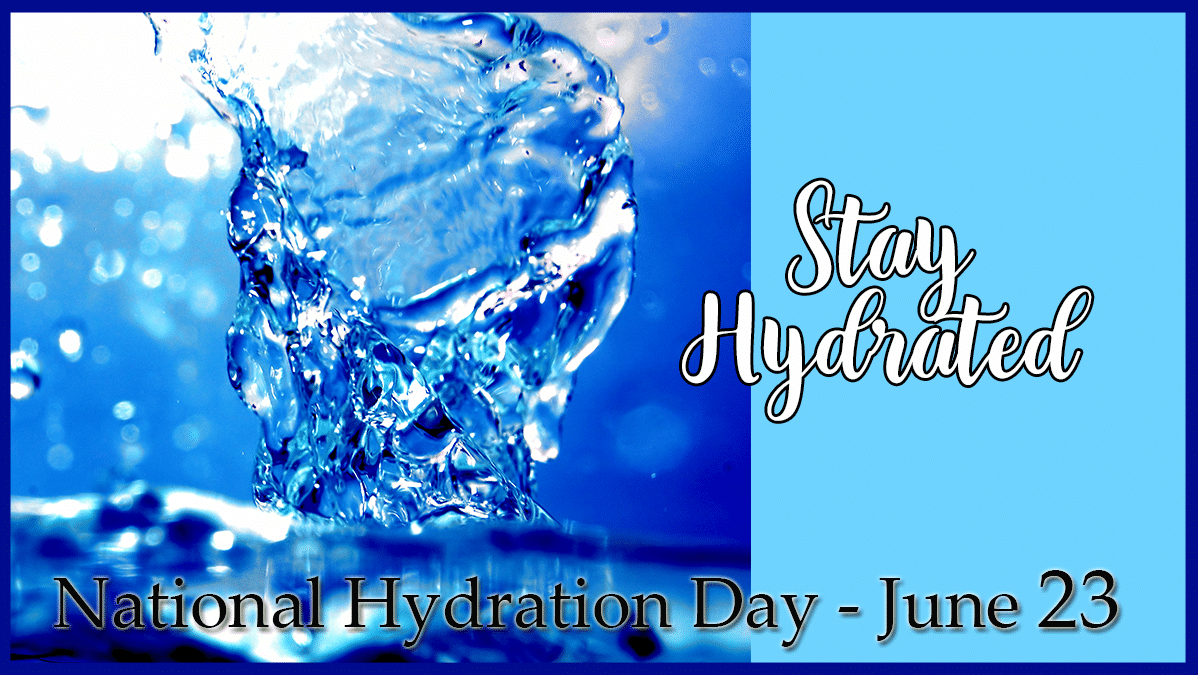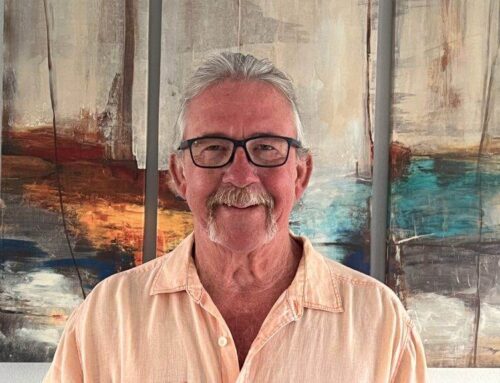National Hydration Day is attributed to Victor Hawkins who was a football coach concerned with the kids on his high school team who experienced sidelining signs and symptoms of dehydration, a harmful loss of too much water from the body. Searching for a solution, he designed a mouth guard that slowly released electrolytes to combat dehydrative effects of player exertion on the field. As the story goes, the company he teamed with to bring this to market established National Hydration Day in his honor, and it’s a good reminder to the rest of us to pay attention to our bodies to maintain optimum fluid levels for health.
The human body is approximately 60% water. Important organs, such as lungs, can be up to 83% water. Muscles and kidneys are 79% water. We tend to take the body’s abilities for granted, but when water is scarce for cells, their function is diminished and performance suffers.
The body uses water for all sorts of things including to help maintain proper temperatures, digest foods, and prevent kidney stones. It is estimated that 75% of Americans are chronically dehydrated (and most are unaware), forcing their bodies to work under a preventable strain as blood’s lifegiving properties are affected and heart rate rises as arterial blood flow is reduced.
Listen to your body. If you have a dry mouth or you’re excessively thirsty, you need a drink. Water is best. If you feel fatigued or your urine is dark colored or you’re taking fewer trips to the bathroom than normal, you need water. Dizziness, confusion, reduced mental ability? Drink some water. If you have muscle cramps, headaches, or dry skin, water may be your answer.
Don’t wait for the signs of severe dehydration to set in. If you aren’t urinating or your urine is very dark, even brown, and it isn’t medication related, you are likely seriously dehydrated. Rapid heartbeat or breathing can be a response. Uncharacteristic sleepiness or lack of energy, new episodes of fainting, or sunken eyes can be related. Drink water to reverse these symptoms, and if this doesn’t fix the problem, meet with your medical people as soon as you can.
The easiest fix for dehydration is to drink water. Approximately a half a gallon of water, 2 liters, or 8 cups of water a day is required to keep most folks who don’t have doctor prescribed water restrictions healthy. If you have trouble remembering how much you drink, use a bottle with measurements marked on the side to track your intake.
Some foods are rich in water and they help. Watermelon and cucumbers, aside from being delicious, are more than 90% water. Celery, strawberries, most fruits, lettuce, tomato, and zucchini are a few more water gems.
Celebrate National Hydration Day 2023! Drop a cold bottle of water to outside workers. Raise a glass of water, discuss the topic with a friend, and set aside some peaceful time to relax and appreciate blessings.




